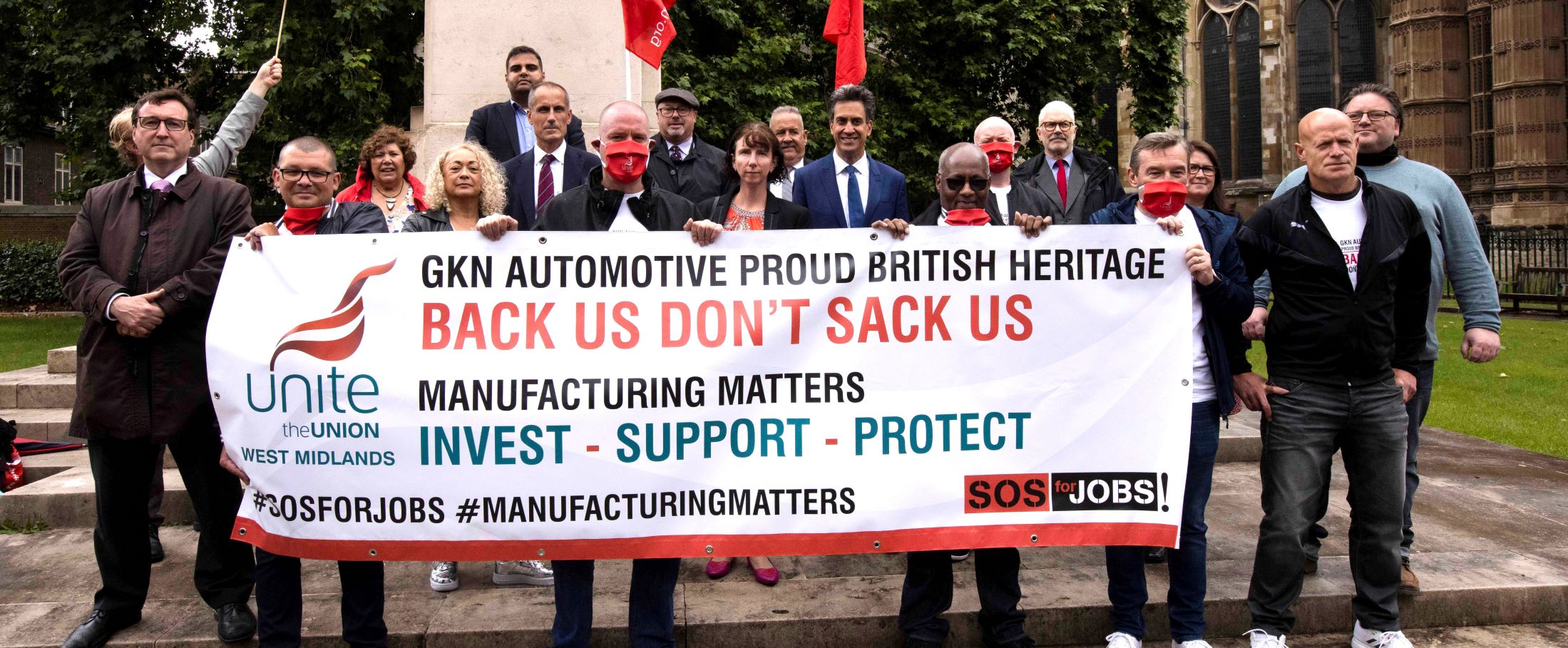â€Unacceptable face of capitalism’
Melrose executives – who are on the verge of cashing in after shareholders approved a hostile takeover of GKN last month – earned £170m last year, amounting to more than £40m each.
Their eye-watering remuneration was slammed by the High Pay Centre as the â€unacceptable face of capitalism’.
“These are extraordinary sums of money, 10 times higher than the average for a FTSE-100 chief executive, let alone an ordinary worker,” High Pay Centre director Luke Hildyard told the Daily Mail. “Melrose are involved in a highly controversial takeover, supported by hedge funds and opposed by workers’ representatives.
“To see a group of executives rewarded so extravagantly, by a committee of other wealthy business leaders and financiers at the same time, makes it very difficult to argue that the UK’s economic model is working functionally or fairly.”
According to company accounts filed yesterday (April 10), Melrose chief executive Simon Peckham earned £42.7m, executive vice chairman David Roper netted £42.3m, finance chief Geoffrey Martin raked in £42.5m and chairman Christopher Miller took home £42.3m in 2017.
Their fat cat pay packets are only the beginning – under a bonus incentive scheme introduced last year, they could stand to trouser £285m in 2022 if they increase the share price of Melrose after the GKN takeover.
Unsurprised
Unite assistant general secretary Tony Burke said that “nothing surprises me about their earnings.”
“Melrose has always been a company that exists solely to make money for its executives and their shareholders – they are not an engineering firm like GKN is,” he noted. “Our big concern now is how long is Melrose actually going to be in the automotive and aerospace industries. They’ve said they would commit to staying five years in aerospace but it is our view that the sector requires a lot longer than that – 15 to 20 years – to bring in the necessary investment to be successful.”
This was a point highlighted this week by University of Sheffield finance and accounting professor Prem Sikka, who noted that “the £8bn paid by Melrose to acquire control of GKN will go straight to the pockets of shareholders. None of it facilitates additional investment in the company.”
“If Melrose’s past practices are any guide, GKN will be loaded with debt to enable its new shareholders to extract higher returns,” Sikka wrote in the Political Quarterly. “The need to service debt will reduce the resources for investment.
“Some parts of the GKN will be sold off and jobs will be lost to further reduce the UK’s pool of skilled labour. Melrose has indicated that it might hang on to GKN for five years, but that is insufficient for long-term planning, research and product innovation in the engineering sector.”
While this scenario is a worrying one, Unite believes that it does not have to be a foregone conclusion – after consulting with GKN reps last week, Unite is seeking urgent meetings with both business secretary Greg Clark and defence minister Gavin Williamson to press the case for government intervention on national security grounds.
Unite is also seeking meetings with Melrose in a bid to secure assurances on investment and jobs if the takeover becomes final on April 19.
While Unite continues to fight for jobs and an industrial future for Britain, Burke said that ultimately what’s needed is a “root and branch review and change of takeover laws.”
Notoriously weak
As it stands in the UK now, takeover laws are notoriously weak – shareholders, many of whom are nothing more than speculators with little interest in the long-term success of the companies whose shares they buy and sell, are given inordinate power.
Unite is calling for full transparency in any given hostile takeover – starting with transparency from the Takeover Panel which oversees and regulates takeovers. The union is also lobbying for a two-thirds majority vote for a takeover to be approved by shareholders – now, the requirement is only a simple majority of 50.1 per cent. Unite has argued that other stakeholders – such as the workforce – also must be consulted in any takeover, especially a hostile one.
“Above all there must be laws in place to take into account the national interest, our manufacturing sector and Britain’s wider industrial strategy,” Burke said.
“The situation we have now is that the UK is essentially like a shop – the doors are wide open, nobody’s in the shop, and the keys to the safe are hanging up behind the till saying â€take me.’ We must have stronger legislation to protect our industries and jobs.”
 Like
Like Follow
Follow

